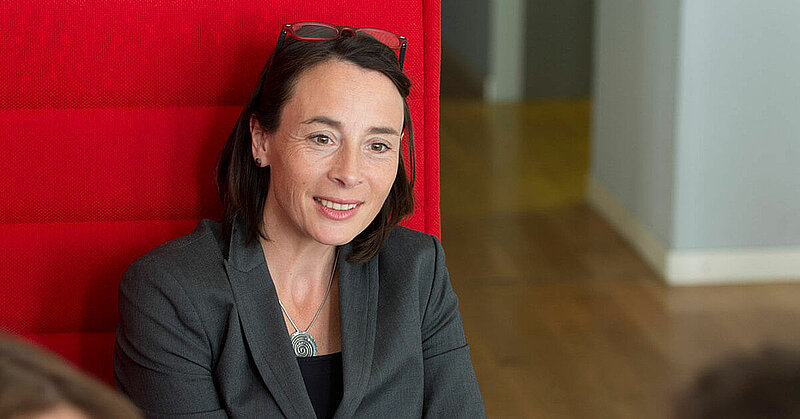
The Professor of Sociology joins the newly founded research centre which studies families and inequality from an interdisciplinary perspective.
Small families, single parents and separated families, patchwork and rainbow families, families across national and continental borders – today’s family has many faces. But it is not only this diversity, but also immigration and increasing life expectancy that are shaping today's and tomorrow's societies. To find out more about the needs of families facing demographic and social change, the Einstein Foundation just launched the Einstein Center Population Diversity (ECPD), which connects scholars from more than six Berlin-based academic institutions. Hertie School Professor of Sociology Michaela Kreyenfeld and Charité Professor of Social and Behavioural Gerontology Paul Gellert have been appointed as Directors of the new centre.
“I am honoured to take on the role of Director at the Einstein Center Population Diversity,” says Kreyenfeld. “While there was a common understanding of 'the family' in the past, in today’s complex world, families have become more diverse. For ageing societies, increasing family diversity raises new questions, e.g. relating to care and social security in old age. We must research in this area as politics and society need to anticipate the consequences of growing family diversity in ageing societies.”
Along with her responsibilities as Director, Kreyenfeld will also take on research projects at the Center. With more than 20 years of experience in the field, she will focus on the consequences of divorce and separation for family and individual well-being.
Center investigates the management of inequality dynamics
"The growing diversity of the population and the simultaneous change in the age structure pose challenges for societies, especially when it comes to managing the dynamics of inequality. Different ways of living together are an opportunity, but they can also entail potential risks, for example, when inequality arises through spatial and social exclusion or is exacerbated in terms of health and education," says Prof. Paul Gellert. "In order to deal with the opportunities and challenges of this social change, we need a comprehensive understanding of the complex mechanisms that determine population diversity and inequality throughout the life course."
Today, the new Einstein Center begins its research work for an initial period of six years. It includes leading scholars from fields such as medicine, psychology, demography and sociology from Berlin’s top research institutions, including Charité, Humboldt University, Freie Universität Berlin, the Berlin Social Science Center, the Berlin-Brandenburg Academy of Sciences and Humanities, and Population Europe. The aim of the researchers is to decipher the effects of family diversity on social inequality and health. To this end, they will examine people's life courses holistically and within their respective social, cultural and structural contexts. The scholars will also engage in dialogue with representatives of civil society in Real World Labs.
More about the work of the ECPD can be found in the press release of the institution (in German).
Note on transparency: This news text contains elements which have been translated from its German original.
More about our expert
-
Michaela Kreyenfeld, Professor of Sociology
